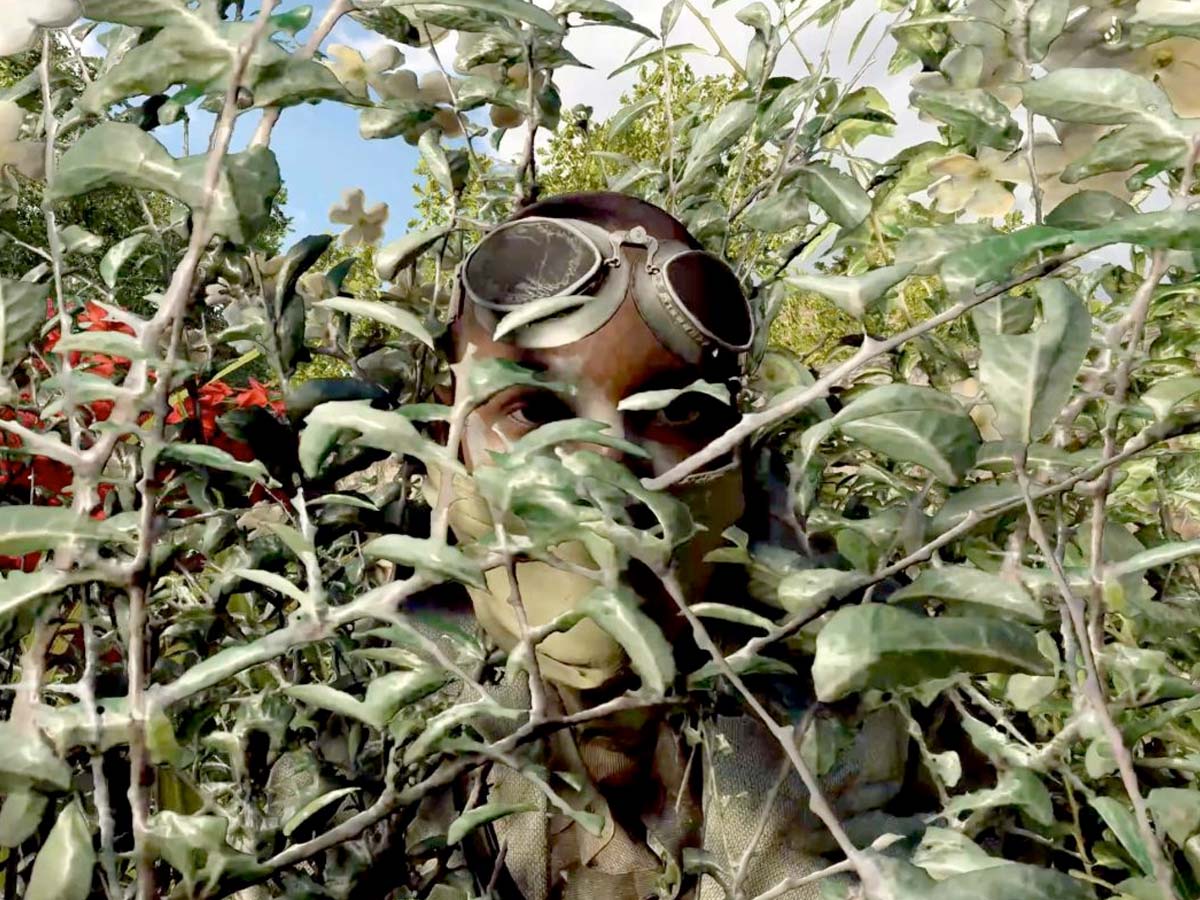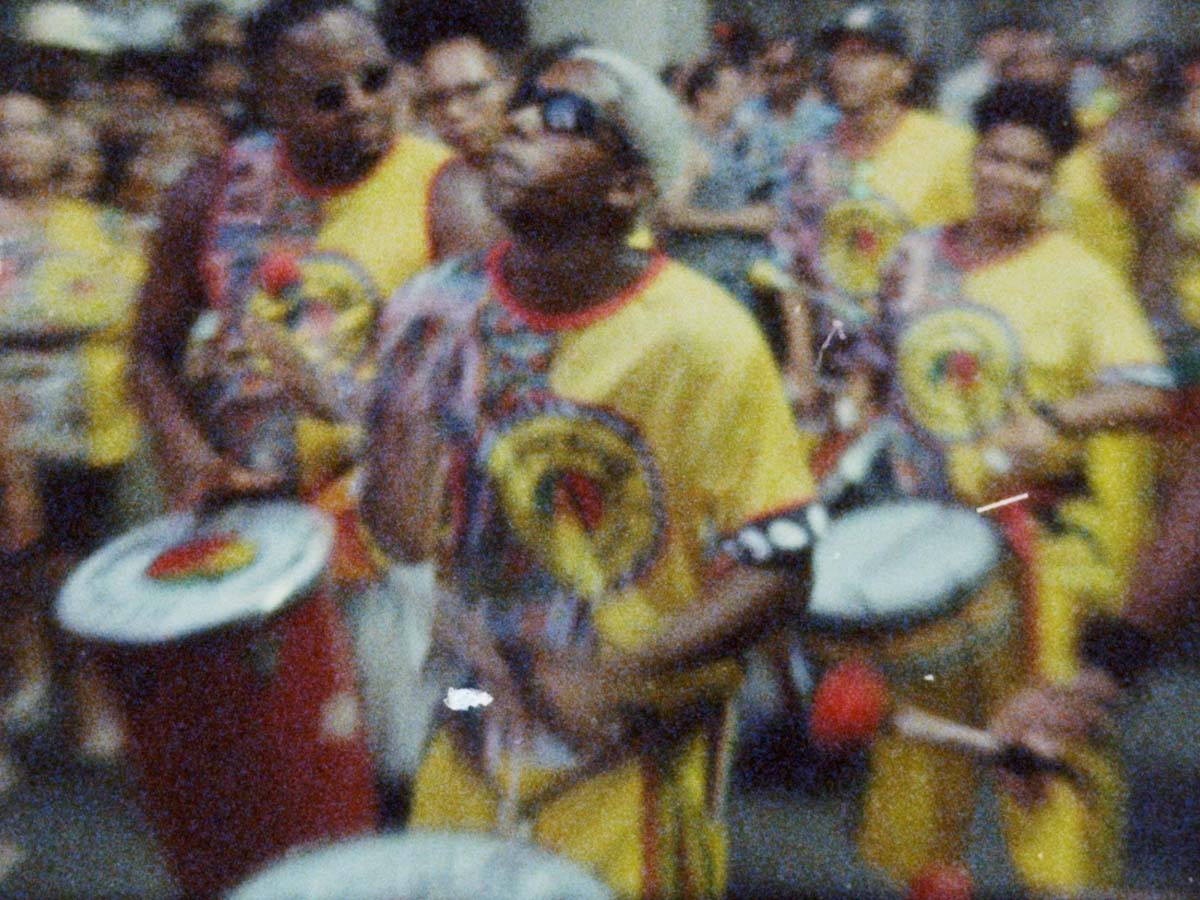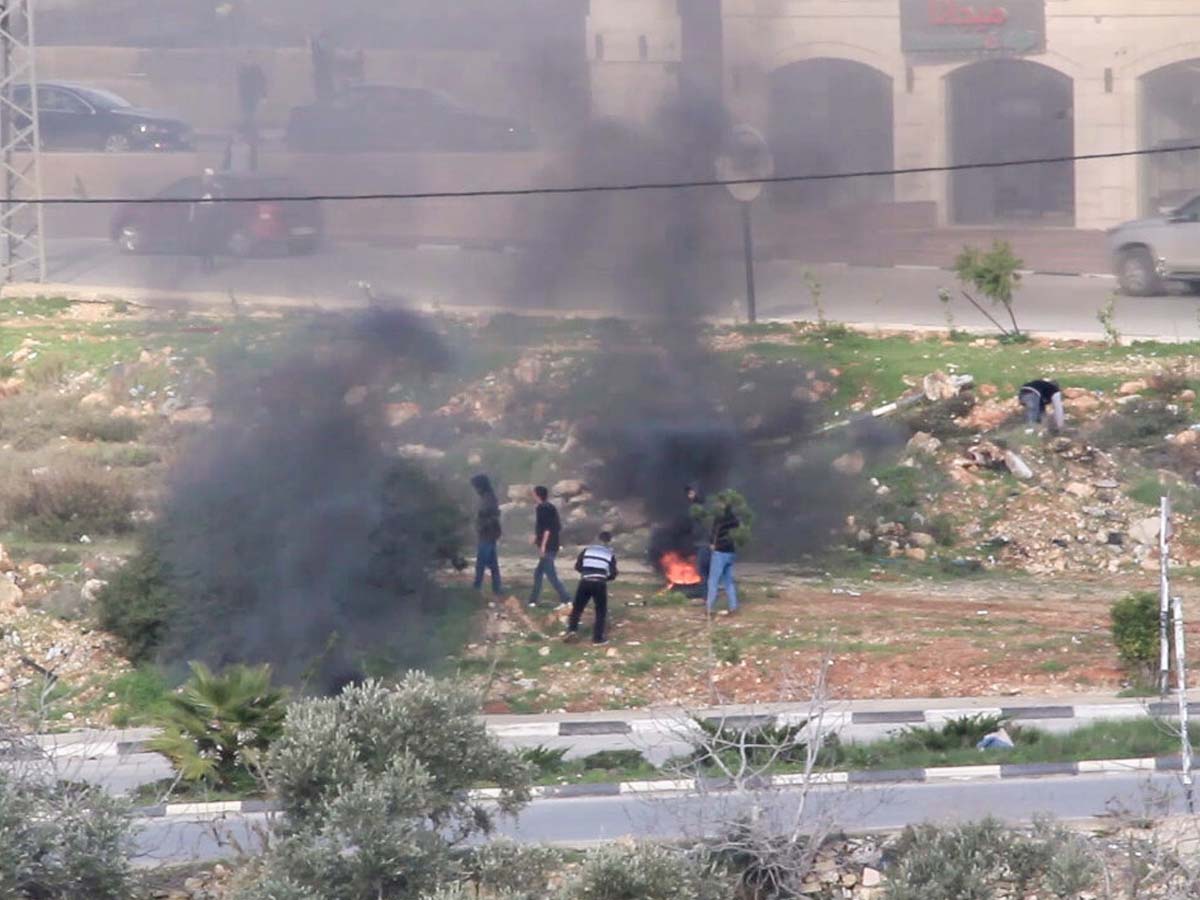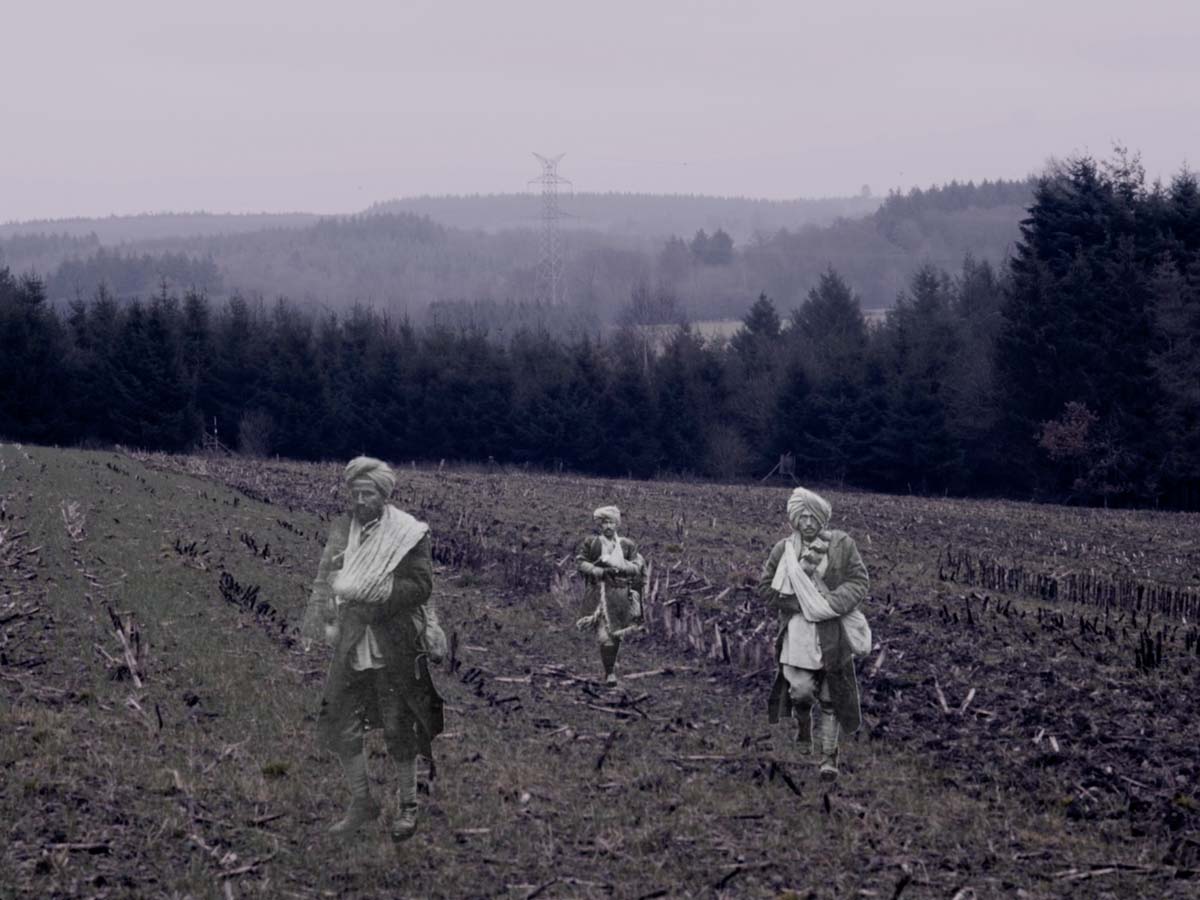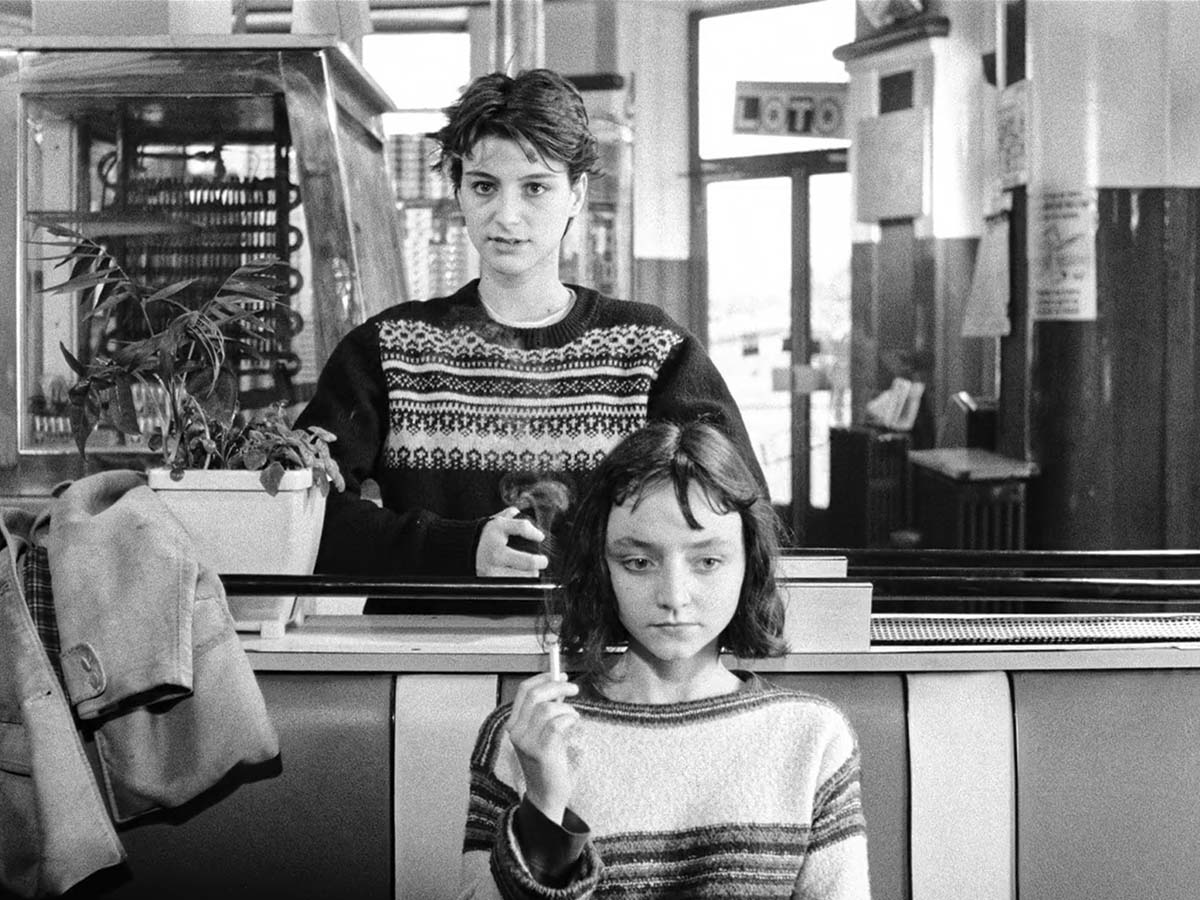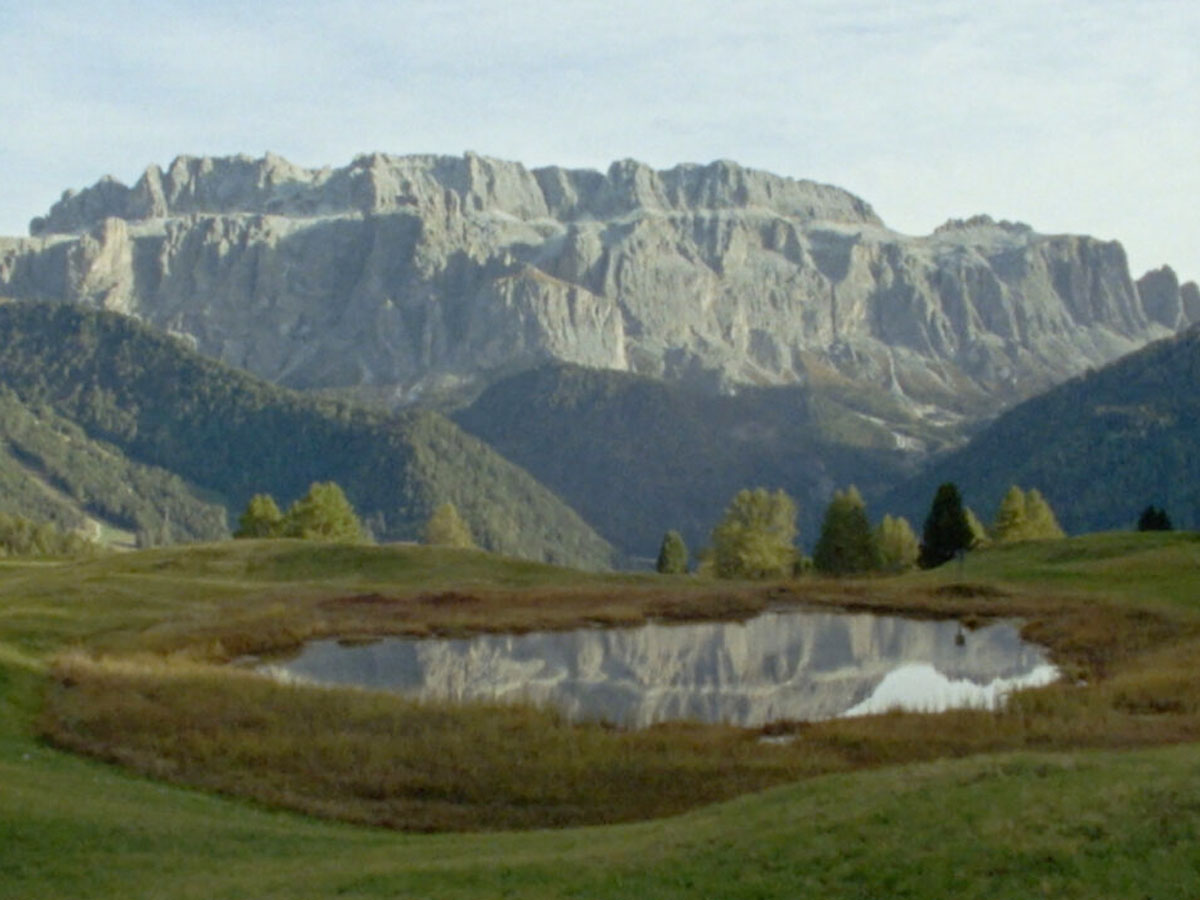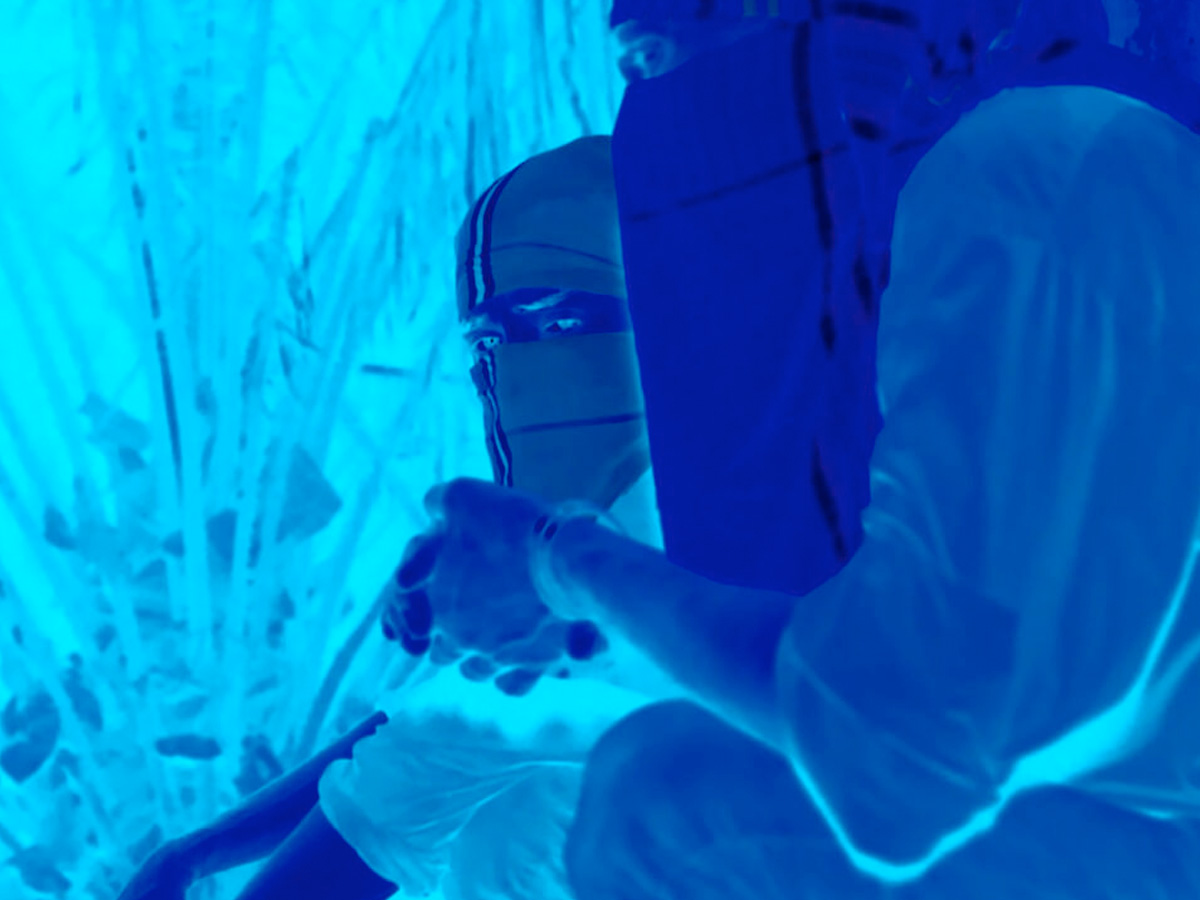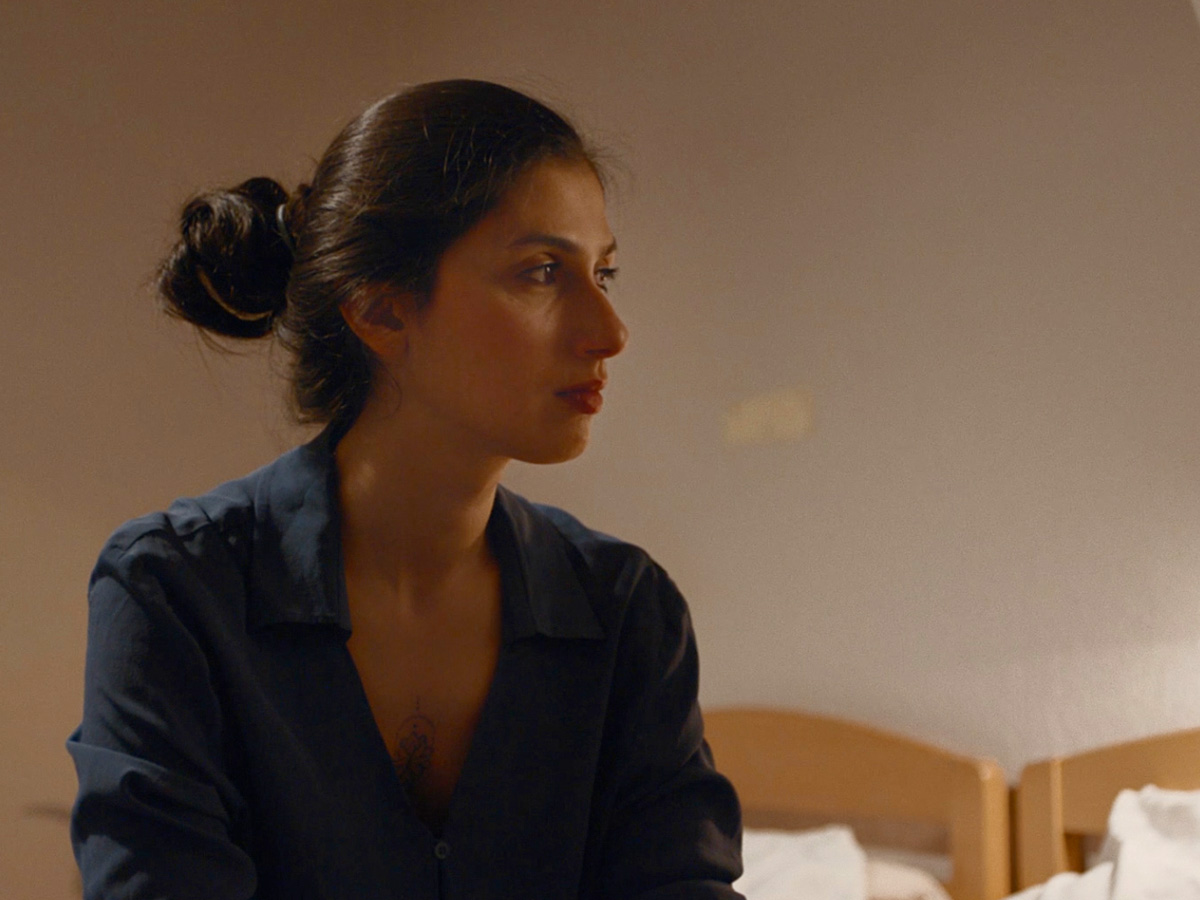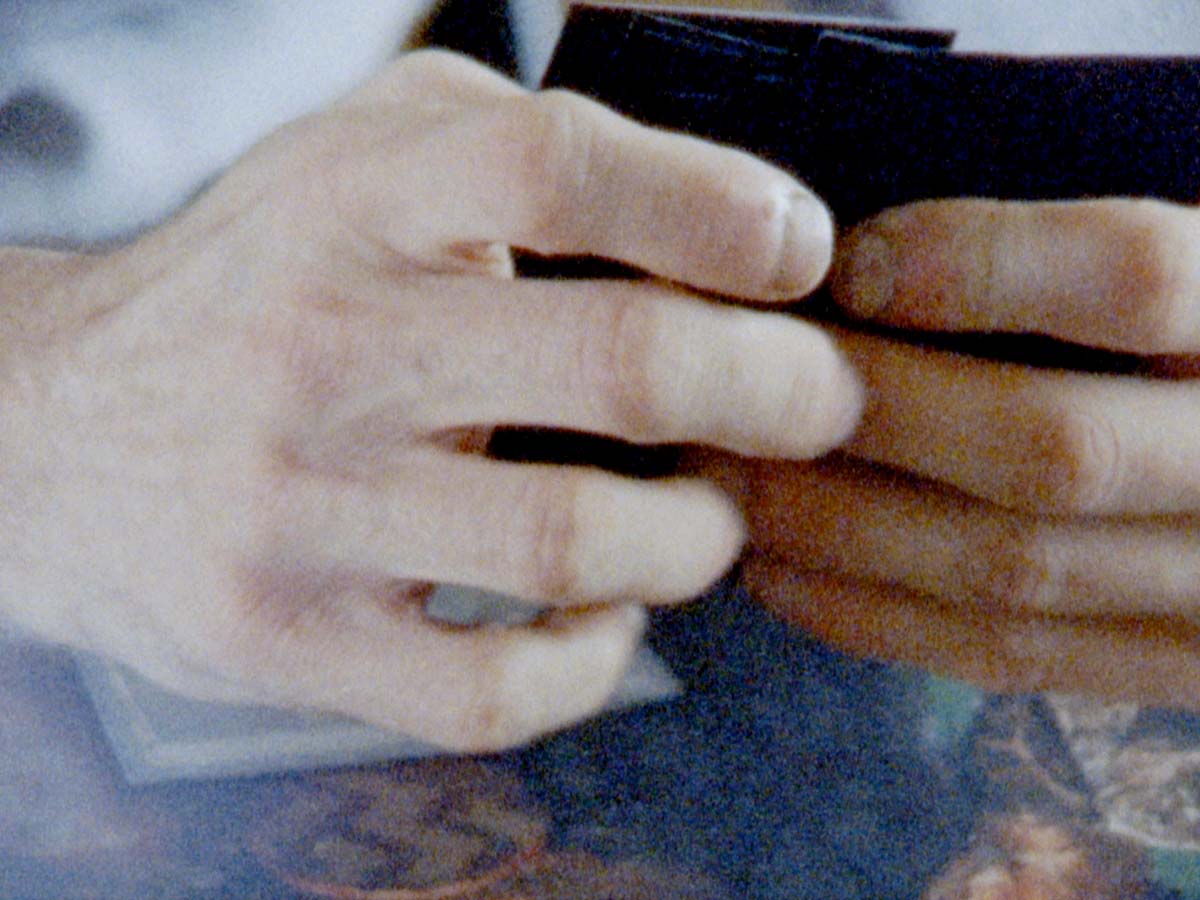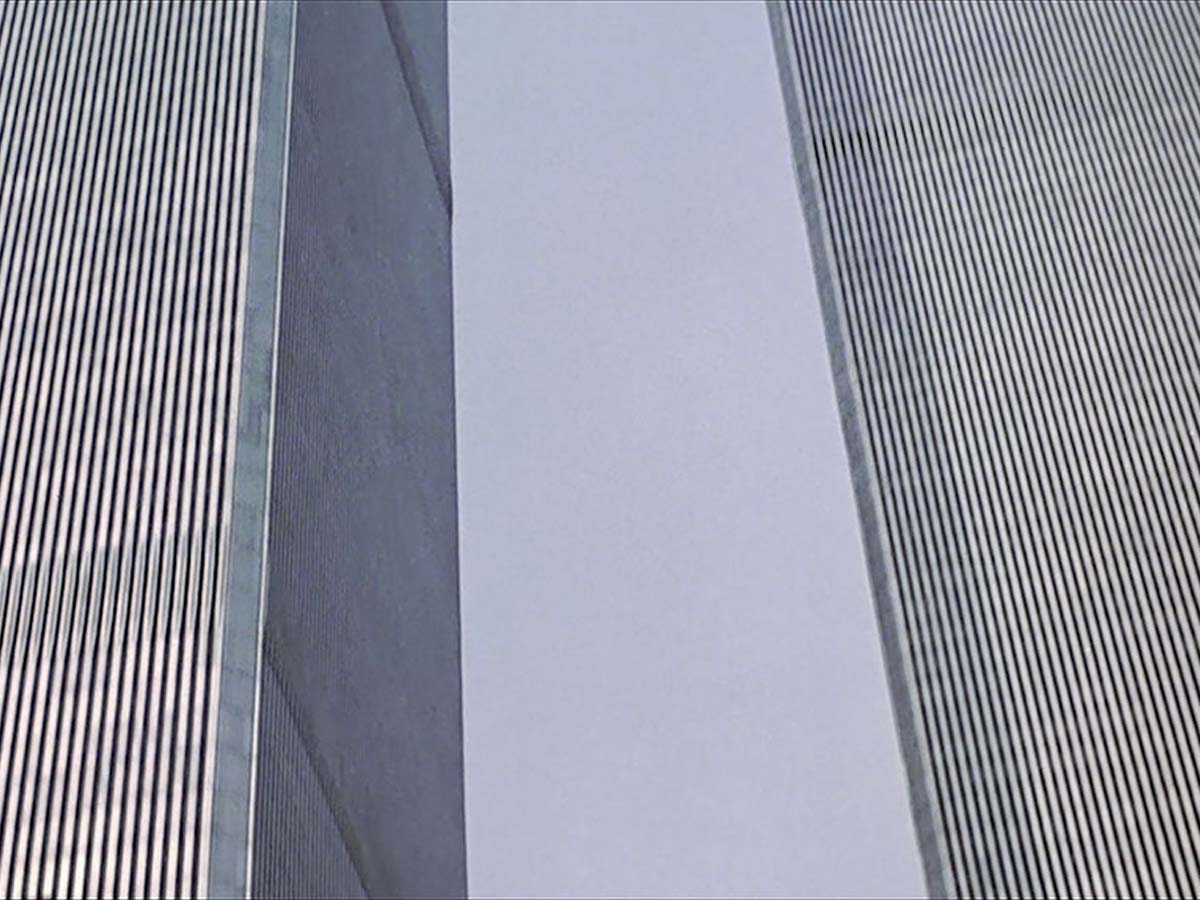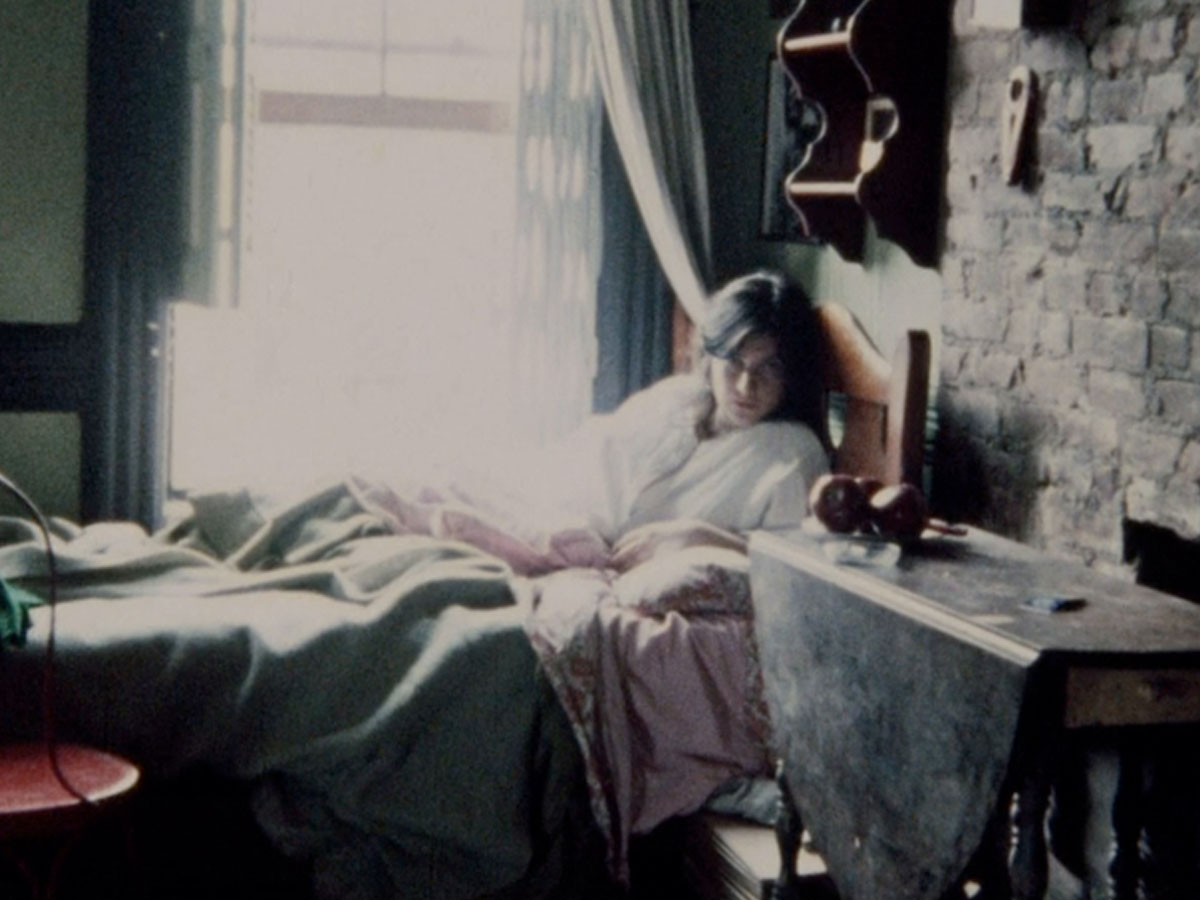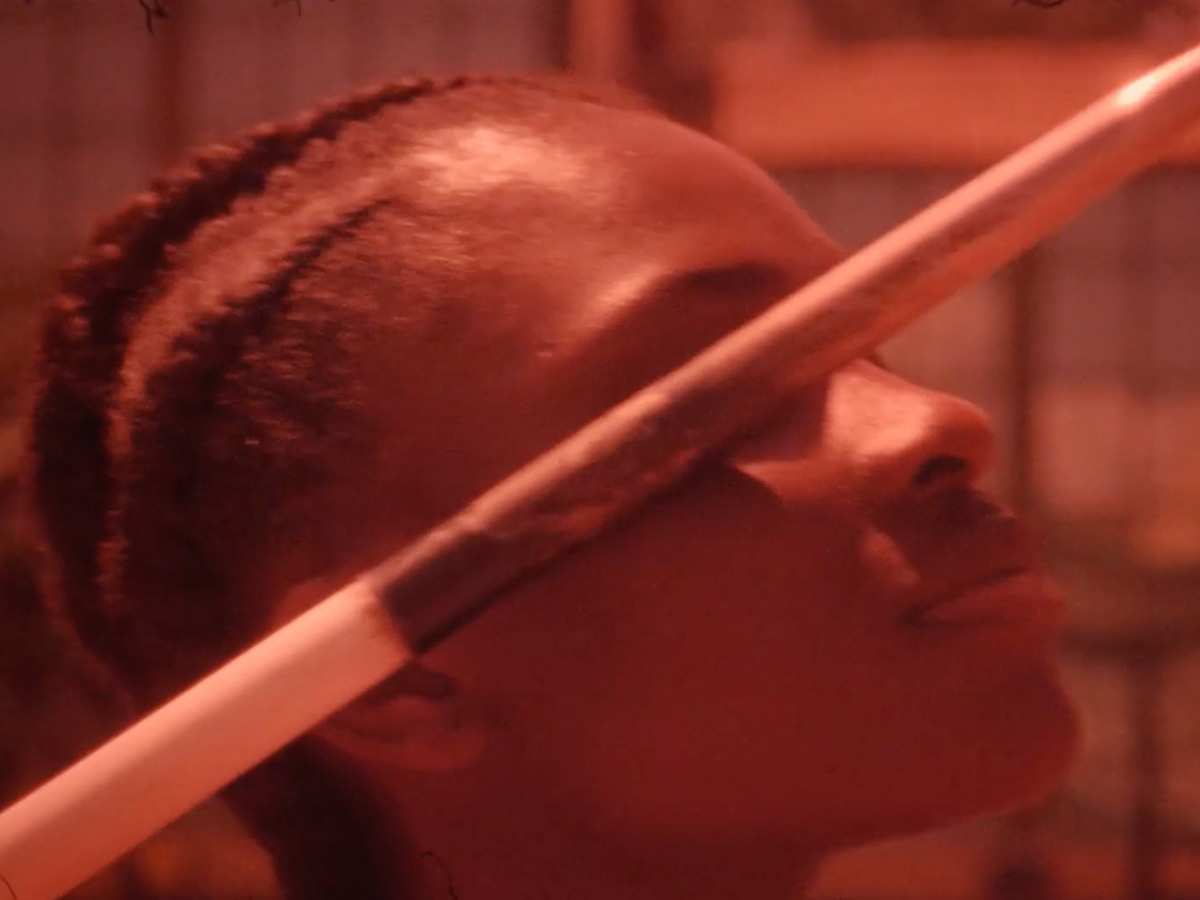TXT
“War Is Not Over”
Curator Inge Coolsaet’s argos programme “War Is Not Over” surveys polymorphic responses to some of the major historical conflicts still haunting the West, hybridising once more the space between war and spectacle, reality and fiction—an opportunity for distraction, if not reflection, before we turn to the news cycle again.
In conversation with Vytautas Katkus
In recent years, Baltic arthouse cinema has been gaining international acclaim, and Film Fest Gent is among the festivals that took notice—celebrating the movement with a retrospective of Vytautas Katkus’s short films, describing him as “one of the most intriguing voices of his generation.” During the festival’s opening week, we sat down with the Lithuanian filmmaker.
“solitude au masculin”
In “solitude au masculin”, curated by Inge Coolsaet for argos, the emotional struggles of men passed down from generation to generation are observed through the queer and feminist lenses of three films, spanning from the 90s through today. The internal battles of the characters reveal discrepancies, conflicting masculinities, and a distressing solitude. Savina Petkova unravels a tale of longing throughout the short film programme.
Felipe Casanova’s O Rio de Janeiro continua lindo
From afar, Rio’s Carnival often seems the quintessential expression of everything Brazilian. The intense and relentless rhythms incite a trance-like celebration, where song and dance amplify the joyful aura to its utmost hypnotising. The foreign onlooker gawks at the carnival because of its enthralling release from the usual reign of restraint and rationality. To them, it plays as a sensorial reverie whose exuberant exterior embodies the “exotic”, but beyond the initial flash and pan, there’s a communal force deeply ingrained in the event.
Fairuz & El Moïz Ghammam’s Oumoun
“Listen, Grandma.” These words appear on a black screen, a summons that feels more like a pact than a simple instruction. Before any image emerges, there is a clear call to pay attention. Next, the first image surfaces and does so without flourish: in a fixed frame, an old woman is seated amid a room where life has been packed up —boxes, bags, bedding, a stool with a pair of sandals. A bright red sheet draped over a box commands our attention; it is a rectangular blaze that both hides and announces its contents. The woman props her left arm and leans forward just enough to demonstrate that listening requires posture.
Curated by Inge Coolsaet for argos, the short film programme “Sensitive Content” probes the uneasy politics of visibility in a world rocked by mass unrest and censorship, where the abundance of irrefutable evidence clashes against technologies of repression. Since the advent of the smartphone in the early 2010s, the camera has become a cyborgian extension of the body. We no longer rely solely on professional journalists to document war and conflict; rather, the masses making history are the ones making its images, risking their lives to construct a diffuse online network of counter-narratives.
Juliette Le Monnyer’s Ramallah, Palestine, décembre 2018
Juliette Le Monnyer’s Ramallah, Palestine, décembre 2018 (2025) wants us to bear witness. Within a tight ten-minute running time, this minimalist film unfolds as a controlled documentation of one moment of colonial violence during Israel’s occupation of Palestine—almost unremarkable in its sickening mundanity, even tame when compared to the genocidal atrocities livestreamed over the last twenty-three months.
“Why Don’t the Cops Fight Each Other?”
Curated by Inge Coolsaet for argos, in collaboration with Kortfilm.be, the short film programme “Why Don’t the Cops Fight Each Other?” responds to the ever-present police brutality by rejecting futile rhetoric and underlining the urgency and affective power of audio-visual art. This potentially intimidating viewing experience may unsettle viewers’ expectations, but it can also transform the apathetic spectator into an active, reflexive watcher. Across the six works, the violent apparatus of the police force is conceptually, visually, and artistically dismantled. These scattered visual forms of violence constitute a permeating tension; we watch with alertness because in ambiguity lies danger.
On Sarah Pucill’s Surrealism
Over the last thirty years, Sarah Pucill’s films have shown a sustained engagement with feminist politics, surrealist aesthetics, and the material language of cinema. Her work is connected by a visual and conceptual vocabulary that keeps evolving. Figures, motifs, and techniques reemerge—the principle of continuity is key to understanding how the artist’s work coheres, drawing strength from its self-reflection.
On Sachin’s In Flanders Fields
In Flanders Fields is a ghost story. Directed by Rajasthan-based filmmaker Sachin, the short film is a poetic meditation on war, colonial erasure, and ancestral presence in foreign land. The director introduces us to a rarely acknowledged fact in dominant historical narratives: during the First World War, as many as 1.4 million Indians were conscripted by the British and sent to the frontlines in Flanders. This revelation sets the stage for a cinematic elegy to those forgotten men.
On Emmanuel Van der Auwera’s White Cloud / 白云
In this so-called post-truth era, the line between fact and fiction has blurred into a matter of style: what appears plausible is accepted as real. The rise of generative artificial intelligence has not merely accelerated this disintegration but formalised it. Truth is no longer something to be discovered, but something to be produced. Within this context, White Cloud / 白云 by Emmanuel Van der Auwera functions as a case study of the destabilisation of truth, image, and representation.
A conversation with NEOZOON
Do you like cat videos? Try watching a thousand in a row, spread them on a timeline, and map out the similarities and differences between them. This experiment could serve as a primer for the work of two-person art collective NEOZOON, whose preoccupation is human-animal relationality. Using only found footage and social media archives, the duo aims to expose the oppressive power structures that position humans as exceptional, and non-human animals as anything but.
Jonas Mekas’ Self Portrait (1980)
“We’re running?” Mekas asks the cameraman. “We’re running!” replies the latter. Mekas repeats the question, as if he’s not quite sure. Then he pulls out a watch. “It’s a quarter to two, Saint Paul time. We should be finished by five minutes after two.” So begins Jonas Mekas’s Self Portrait from 1980. Despite the title, Mekas is not filming himself. A cameraman captures him standing in a garden in front of a friend’s cottage in Saint Paul, Minnesota, drinking a can of beer.
On Mourad Ben Amor’s Bamssi
Animals no longer live in nature; they now exist first and foremost on our screens. While each new internet-based encounter with them still feels as surprising and delightful as ever, the obsessive relationship with animal imagery often remains limited to fulfilling our emotional needs—rarely do we question the underlying motives. Mourad Ben Amor’s Bamssi (2024)—a diary film made alongside a pack of animal protagonists—hints that our fascination may sometimes be less about the animals themselves than about the spontaneity and impulsivity that emerge from their most routine gestures.
On Towards the Sun, Far From the Center
Much has changed in the last decades, but the concepts of clarity and detail still dominantly inform our appreciation of experiences and knowledge, including art. So an unclear film such as Chilean filmmakers Luciana Merino and Pascal Viveros’ Towards the Sun, Far from the Center, engages with contemporaneity in ways unsuspected at first glance. And when I say that it’s an unclear film, I mean this in the most obvious way: its image, consisting of slow pans of Santiago taken from a bird’s eye view (at a pace different from that of a drone—maybe from a crane?) is zoomed-in so much that it seems bidimensional; not abstract, but plastic, toyish, slightly unreal.
On I’m Hungry, I’m Cold by Chantal Akerman
Henri Bergson believed that the phenomenon called humour arises when the material world falls short of our spiritual aspirations. Had he lived long enough to savour Chantal Akerman’s work, he could have found proof for his thesis. Not only was Akerman a gifted metteuse en scene of Chaplinesque slapstick, but how she depicted romantic love was also a source of uncontrollable chuckling, thanks to this gap between wishful dreaming and all-too-human reality.
Whose mother tongue? A conversation with Eva Giolo on Memory is an Animal, It Barks with Many Mouths
Eva Giolo’s films are marked by a rhythmic quality attuned to the push and pull of the monumental and the ordinary, the mythical and the everyday. In Memory Is an Animal, It Barks with Many Mouths, Giolo turns her camera to the Italian ski area Val Gardena, nestled in the valleys surrounding the Dolomites, where she evades a touristic image and instead captures isolated moments in nature with her characteristic 16mm Bolex camera.
On Omar Chowdhury’s BAN♡ITS
“There’s a reason why everybody hates Batman in those movies,” comments one of the titular protagonists in Omar Chowdhury’s BAN♡ITS. Set in a liminal space between Bangladesh and India, the film follows a group of self-proclaimed “destitutes” who rob the rich to give to the poor and are obsessed with Heath Ledger, because “he died for his art.” Inhabiting a lawless limbo where radical credos coexist with state-sanctioned anarchic stances these outlaws are as porous and opaque as Chowdhury’s film itself.
A Conversation with filmmaker Hoda Taheri
Over the past few years, Hoda Taheri (Tehran, 1992) has toured many a film festival with her short films Mother Prays All Day Long (2022), As If Mother Cried That Night (2023), and Mother is a Natural Sinner (2024), the first of which you can watch via Kortfilm.be’s video-on-demand catalogue. In this “mother trilogy”, Taheri zooms in on relevant issues such as the right to abortion and the treatment of refugees in Europe. She takes on the lead role herself, cunningly and humorously dramatising her own biography.
A Conversation About Eco-Activism in Cinema
Diego Quinderé de Carvalho’s 0.2 Milligrams of Gold and Andrés Jurado’s Yarokamena invite us to reconsider our relationship with nature, history, and the systems that shape our lives. In conversation, both filmmakers talk about their filmmaking process and the question of activism in art.
Portraits of proximity: Chloë Delanghe’s Magic, a portrait of Joris
The camera measures distances. Its focal point coincides with an object in the room and through the emptiness around it, something becomes visible. It is an obvious observation, yet this essential aspect of photography is important in the work of Chloë Delanghe. Her work is situated on the crossroads between intimacy and distance.
On Christoph Girardet and Matthias Müller’s Misty Picture
Through association, repetition, and accumulation, Christoph Girardet and Matthias Müller showcase the inventory of Hollywood formal clichés that contributed to the creation of the Twin Towers’ symbolic capital, reflecting at the same time on the power of those images to haunt our collective imagination to this day.
On Chantal Akerman’s Portrait d’une paresseuse
Portrait d’une paresseuse seems one of Chantal Akerman’s more playful and lighter works—a skit in which she acts out a filmmaker’s creative process of attempting (and failing) to make a film about being lazy.
On Chantal Akerman’s La Chambre
Lounging on a small bed, Chantal Akerman’s posture seems casual and relaxed at first glance, but the repetitive tilts of her head—to the left and then back to center—contrasting with the smooth glide of the camera suggest otherwise. Restlessness is in the air, yet before we can discern it, the image is already on the move, retracing its steps for a second time.
Jacqueline Lentzou on The End of Suffering (A Proposal)
Greek filmmaker Jacqueline Lentzou does not look for inspiration; inspiration finds her. In her artistic practice, vague ideas slowly develop into something more comprehensible, more tactile. In The End of Suffering (A Proposal), she renders the mere act of “understanding” palpable.


